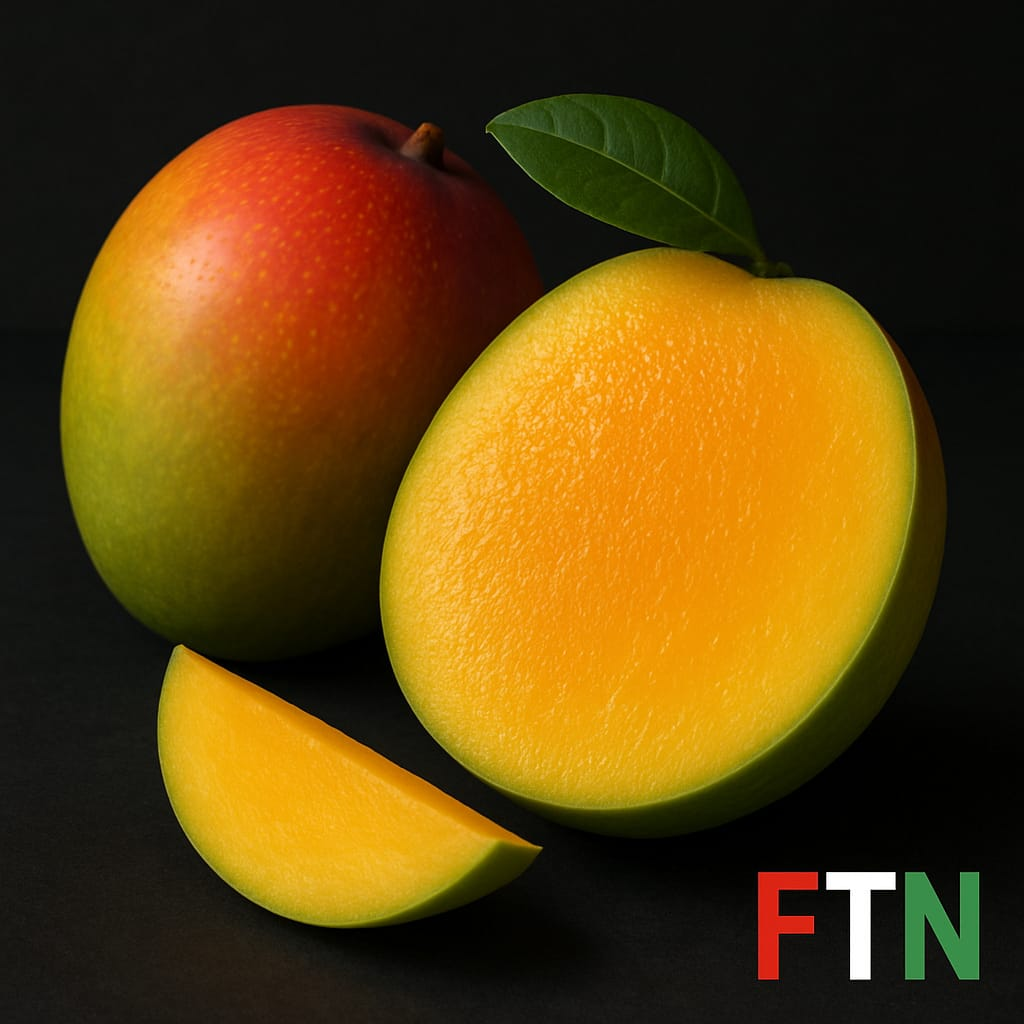Mango: The Golden Superfruit for Health and Performance in 2025 🍊🌟
Introduction: The Rise of Mango as a Nutritional Powerhouse
Mango, scientifically known as Mangifera indica, is a tropical fruit cherished around the world for its juicy flavor, vibrant color, and rich cultural heritage. Originating in South Asia over 4,000 years ago, mangoes have earned the title of “the king of fruits” not just for their taste, but for their extraordinary health benefits. In 2025, mangoes continue to gain popularity among health enthusiasts, athletes, and everyday consumers looking for natural, nutrient-dense food choices.
Mangoes are loaded with vital nutrients such as Vitamin C, Vitamin A, fiber, and powerful antioxidants like beta-carotene and polyphenols. They also come in a variety of types—Alphonso, Haden, and Tommy Atkins, to name a few—each offering a unique flavor and nutritional punch. Whether eaten fresh, juiced, dried, or blended, mangoes offer endless culinary possibilities and health perks.
Nutritional Profile: A Vitamin-Rich Tropical Treat 🌿🧪
Mangoes are a nutrient-dense fruit packed with a wide array of vitamins and minerals. A single cup of diced mango provides:
- Over 60% of the daily recommended intake of Vitamin C, supporting immune defense, skin repair, and iron absorption.
- Nearly 35% of the daily Vitamin A needs, essential for vision and skin health.
- A solid dose of dietary fiber, promoting digestive wellness and satiety.
- Natural sugars and carbs that offer quick, clean energy.
- Antioxidants like beta-carotene and polyphenols, which reduce inflammation and cellular damage.
These components make mangoes a smart, natural choice for anyone aiming to maintain or enhance their health through diet.
Health Benefits for Everyday Consumers 🚑🍽️
For the average person, mangoes provide multiple wellness benefits:
- Digestive Health: High fiber content aids in regular bowel movements and supports a healthy gut microbiome.
- Immune Support: Vitamins A and C strengthen the body’s natural defenses.
- Skin Health: Antioxidants help maintain skin elasticity and brightness while fighting signs of aging.
- Weight Management: Low in calories and high in fiber, mangoes can help curb cravings and promote fullness.
Their refreshing flavor and versatility make mangoes an easy addition to snacks, meals, and even desserts.
Mango and Energy Levels: A Natural Boost ⚡️🍇
For those seeking a natural way to fight fatigue and increase energy, mangoes offer a perfect solution. Their mix of natural sugars (glucose and fructose) and carbohydrates delivers a quick energy lift without the crash associated with processed snacks.
- Pre-workout Fuel: Eat mango slices or drink a mango smoothie to power your workout.
- Midday Slump Solution: Replace sugary drinks with fresh mango to sustain energy.
- Vitamin B6 helps convert food into fuel, optimizing metabolism.
Whether you’re heading to the gym or just need an afternoon pick-me-up, mangoes provide clean, sustained energy.
Athlete-Friendly Fruit: Recovery and Performance 🏃♂️🏊
Mangoes are especially valuable for athletes and active individuals:
- Collagen Production: Vitamin C aids in joint and tissue repair, reducing injury risks.
- Hydration: High water content (about 83%) helps replenish fluids lost through sweat.
- Muscle Recovery: Antioxidants like beta-carotene and polyphenols reduce oxidative stress.
- Natural Sugars: Provide energy during and after intense physical exertion.
A post-workout mango smoothie or fruit bowl can support recovery, muscle repair, and performance.
Easy Ways to Add Mango to Your Diet 🍜🥞
There are countless ways to enjoy mangoes throughout the day:
- Smoothies: Blend with banana, yogurt, and spinach for a nutrient-packed breakfast.
- Salads: Add mango cubes to leafy greens, quinoa, or avocado for a tropical twist.
- Salsas: Mix with tomato, onion, and lime to complement grilled meats or seafood.
- Desserts: Use mango puree in baking or freeze it for healthy popsicles.
- Snacks: Dried mango is a portable and tasty treat.
Mango’s sweet and tangy profile pairs well with both sweet and savory dishes, making it one of the most versatile fruits in the kitchen.
Potential Risks: Moderation and Awareness ⚠️🧪
Despite their many benefits, mangoes should be consumed mindfully:
- Allergies: Some people are allergic to urushiol, found in mango skin.
- Blood Sugar: Mangoes are high in natural sugars; people with diabetes should consume in moderation.
- Overeating: Large quantities may lead to bloating or stomach upset due to fiber and sugar content.
As with all fruits, balance is key. Mangoes can be enjoyed safely by most people when eaten in reasonable amounts.
What the Experts Say 📈📃
Health professionals praise mangoes for their nutrient density and health-promoting compounds:
“Mangoes are a fantastic way to boost vitamin C and antioxidants in your diet, helping improve immune function and skin health.” — Dr. Amy Carter, Nutritionist
“The natural sugars in mangoes make them an ideal snack for athletes who need quick energy without the additives.” — Jason Lee, Sports Dietitian
Recent studies also highlight mango’s anti-inflammatory effects and potential role in reducing risks of chronic conditions such as heart disease.
Conclusion: A Sweet Path to Better Health 🌟🍇
Whether you’re striving for better digestion, glowing skin, enhanced energy, or improved athletic recovery, mango delivers. With a wide spectrum of vitamins, antioxidants, and natural sugars, mangoes support overall health in a delicious and sustainable way.
From tropical farms to your local grocery store, this golden fruit offers a flavorful and functional boost to any lifestyle. Make mango a staple in your 2025 wellness routine—your body will thank you.
#EatSmart #PowerOfMango #MangoForPerformance
Personal Take:
This video presents the benefits of mangoes in a digestible and friendly format. It supports your article’s claims effectively and motivates viewers to include mangoes in their diet.
Enhancement Ideas:
Nutrient Pop-Up Highlights: Insert on-screen captions like:
“60% DV vitamin C per cup”
“Vitamin A and beta‑carotene for skin & vision”
“Fresh, natural sugars for pre-/post-workout energy”
Creative Usage Visuals: Show quick clips such as:
Mango smoothies
Mango salads with greens and nuts
Mango as a pre-workout snack
Balanced Advisory Note: Add a brief overlay advising moderation for those monitoring sugar intake: “Moderate serving: ~1 cup per day.”


[…] about other tropical fruits like mango? Explore more health benefits in our related […]